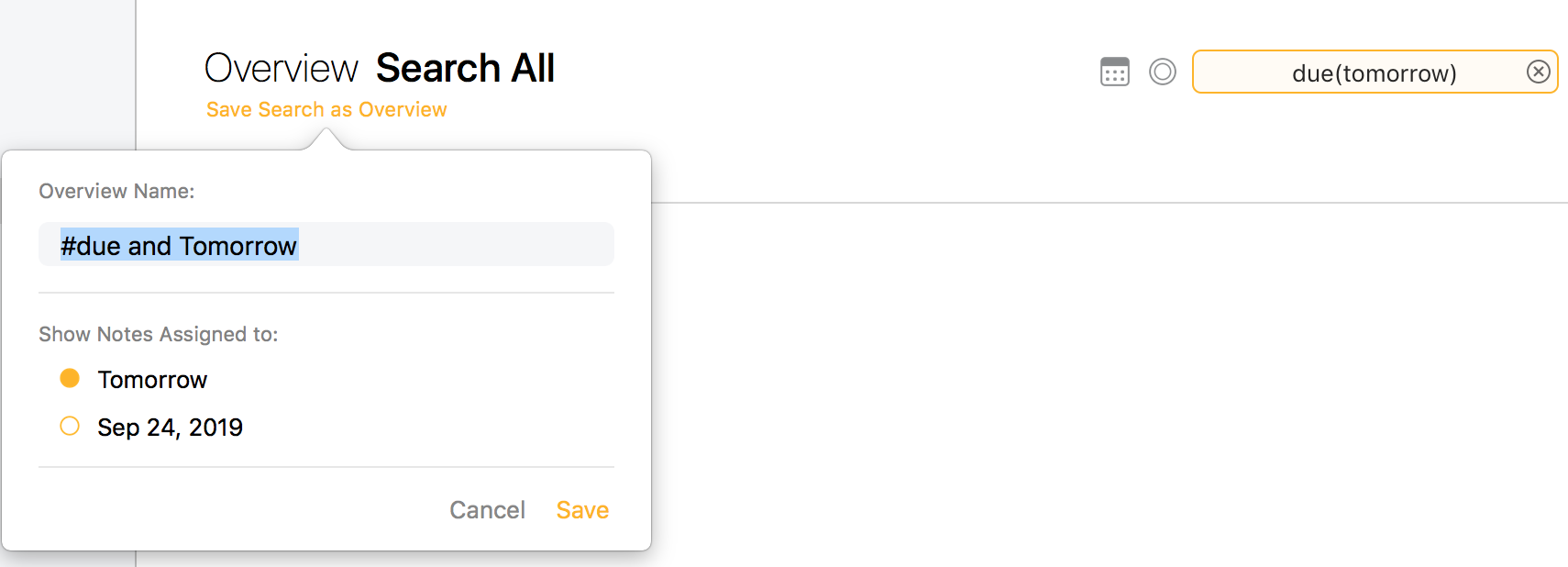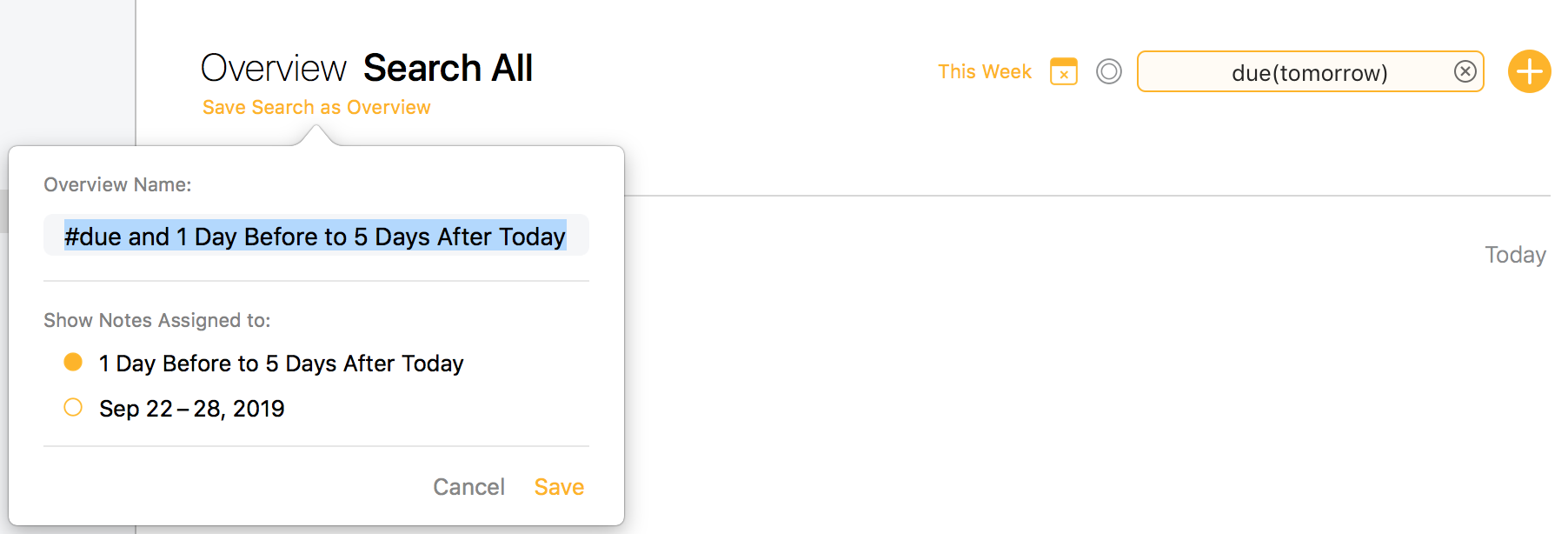True, however, the screen is not clear to me about how it treats the #due tag. My understanding is that a due tag within a note is different from a note’s assigned date. It’s even less clear when you search a date range, and have a due tag.
So I’m wondering if when I save a “due” search (not an assigned date search), does the first option maintain a relative date – so it’s always treated as due(tomorrow) – or does it evaluate the value, same as typing due(tomorrow) in a note today gets evaluated to due(9/24/19). And how does it work when you select an assigned date range?
Anyway, I just tested out basic due search by adding #due(tomorrow) to a note, saving a search with due(today), and then manually setting the computer’s date to 9/24. The note showed up. So it is relative.
Another thing I learned is that there’s nothing special about the #due tag – it’s actually the tag value that’s important. So I can have different sets of tags such as #due(1 month) and #do(1 month) to distinguish between things that have “due dates” (there’s an undesirable consequence to not completing it by that date) and “do dates” (target dates that I want to complete something, minimal / no consequences if it doesn’t happen). I think this can greatly simplify how I plan out goals and projects.

